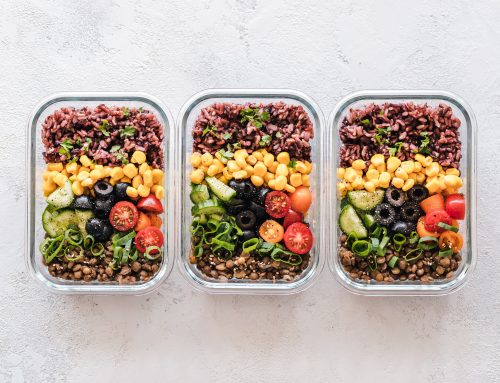Are you suffering from IBS?
Are you considering the Low FODMAP diet OR have you recently tried to follow a Low FODMAP diet yourself?
Body Balance Nutrition’s Accredited Practising Dietitians can provide up-to-date evidenced-based dietary information for people who suffer from IBS and/or who may benefit from a Low FODMAP Diet trial.
FODMAPs (Fermentable Oligosaccharides, Disaccharides, Monosaccharides And Polyols) are poorly digested carbohydrate food molecules. FODMAPs are poorly digested in everyone, travelling (undigested) to the intestines where naturally occurring bacteria feed on the FODMAPs, producing gas. Some people are more sensitive to the gas produced than others, resulting in symptoms of bloating, pain, excess wind, constipation and/or diarrhoea.
Some things to know about the Low FODMAP Diet:
- The Low FODMAP Diet is NOT designed to be a long term diet. The Low FODMAP Diet trial is an evidenced-based diagnostic tool to identify food intolerances which may be causing IBS symptoms is susceptible people. Food intolerance, as opposed to food allergy, is often difficult to diagnose via blood tests or other means. Therefore the gold-standard for diagnosing food intolerances is dietary elimination with systematic food challenges under supervision by an Accredited Dietitian or specialist.
- The Low FODMAP Diet can significantly limit a person’s nutrient intake, especially of fibre, beneficial prebiotics, energy and calcium if the diet is not carefully planned.
- Most people are only intolerant to 1 or more FODMAPs, not all FODMAPs. Therefore, after completing the systematic FODMAP challenges with your Dietitian, you will be able to re-introduce many FODMAPs back into your diet, and only need to avoid the ones you are intolerant to. Furthermore, some people may find out that they can tolerate some FODMAPs in small amounts, while others they may need to avoid completely.
- The Low FODMAP Diet will not address gluten intolerance or coeliac disease. However, because the Low FODMAP diet is a wheat-free diet, it will severely limit gluten intake, which will influence results for coeliac screen/diagnosis, producing false-negative results. If you suspect you have coeliac disease, you should see your GP for a coeliac screen blood test, but you need to eating gluten for at least 4 weeks before having the test.
- Many people who believe they are intolerant to Gluten or Dairy, are actually in fact, intolerant to FODMAPs, NOT Gluten or Dairy. A Low FODMAP diet is Wheat-free and Lactose-free diet, not a Gluten or Dairy free diet. Our dietitians can explain the difference.
- The causes of IBS are multifaceted and while a Low FODMAP diet may resolve symptoms in many cases, there can be other dietary or lifestyle causes of IBS. An Accredited Dietitian will conduct a full diet assessment to determine if FODMAPs is likely cause of IBS your symptoms, or other diet/lifestyle factors.
- Food Chemical Intolerance (Salicylates, Amines, Glutamates and Additives) can also cause IBS symptoms. Our Dietitians also conduct the RPAH Elimination Diet for food chemicals should we suspect this the more likely cause of symptoms (following dietary assessment).
- Our Accredited Practising Dietitians (Adelle Purbrick and Amy Roche) are both trained to educate and manage clients with IBS and/or the Low FODMAP Diet and food challenges. Our Dietitians will conduct full diet assessments, provide advice on how to follow a Low FODMAP Diet (including meal plans and recipes), how to systematically introduce food challenges to identify the actual FODMAP intolerance causing IBS symptoms, and ensure clients can meet all their nutrient requirements in the long term.






